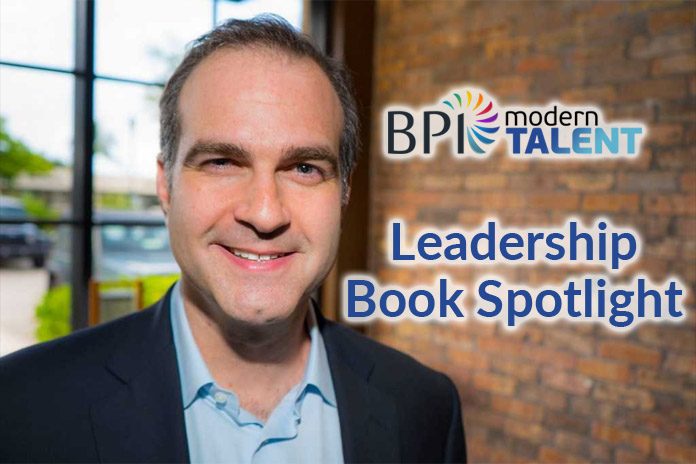Values-based leaders can dramatically shift organizational culture with Grace – so we can all truly be In Great Company.
Grace is featherlight. Theologians and philosophers call it a gift of benevolence and charity that falls lightly on our shoulders. As John Baldoni writes, “It comes calling as a light breeze across the tall grasses, whispering as it ripples. Our spirits, like the grasses, are moved.” Still, this gentle gift can change our lives —even in the workplace.
It’s with that understanding that I met recently with Baldoni about his high-impact book — Grace: A Leader’s Guide to a Better Us. John has received the Lifetime Achievement Award from Trust Across America, lists among the Global Top 30 Gurus, and ranks among Marshall Goldsmith 100 Coaches. The author of 14 books including Moxie and Lead with Purpose, John believes those at the top bring meaning — good and bad — to employees’ day-to-day work.
John’s work coincides with my research at Best Practice Institute into emotional connectedness, psychological safety, values-based leaders, and organizational culture. I also find John’s work to greatly resonate with me and my new book In Great Company, because we both strongly believe in the power of values-based leadership, respect, collaboration, and positivity for creating a high performing organizational culture.
I hear my grandmother’s voice.
John Baldoni remembers his grandmother’s voice, gently helping him process being bullied. “Sticks and stones will break your bones, but words will never hurt you.” Despite her wisdom, John has found that words can be very harmful in a world of “anti-social media” and a “gotcha culture.”
The evil in the world often drowns out the good. Nonetheless, he finds in grace a reaction to hostility because grace celebrates the good things people do. It’s a faith-based gift, a sense of altruism rooted in human DNA. And, it’s up to leaders to implement, practice, and optimize this value.
Grace is a facilitator. It engages and connects people. In the face of de-motivating and de-energizing actions and words, grace lifts the spirit. It triggers compassion, generosity, and respect for others. Grace, embraced and offered by leaders, can shape a culture and energize an organization.
How you can help —
Organizational culture is the unification of assemblages of people in various functions. Values-based leaders must step into the spaces between those boxes because it’s there where innovation and constructive change arise. Those spaces offer opportunities for the grace of emotional connectedness. And, where connection grows, engagement and productivity thrive.
Baldoni finds that grace facilitates the connectedness. It’s an agent and cultivator. But we only know grace through its behavior. There is grace in the ambition to achieve something in the organization’s interest, in a culture of service, and in the commitment to service.
Grace asks questions. How can we focus better? What does “better” mean? How can I be a better colleague? How can I help others do their jobs better? How can we collaborate fully? And, grace assumes the best in everyone. As John writes, “We call it grace, this disposition to do something more for others.”
The concept of the greater good —
Grace has its roots in the idea of the “greater good.” It’s a catalyst for the greater good, coming from understanding, from listening, and from connectedness. It follows, then, that GRACE is a meaningful high-impact acronym where:
G = Generosity, the will to do something for others
R = Respect, the dignity of life and work
A = Action, the mechanism of change
C= Compassion, the concern of others
E = Energy, the spirit that catalyzes us
Generosity, will, respect, dignity, action, compassion, concern, spirit — we find these virtues in personal character. And, it’s grace that enables, empowers, and gives coherence to these traits.
To utilize grace, optimize and maximize its contribution, values-based leaders should start with availability, accessibility to others, listening more than talking. After all, conversations build trust and relationships. It’s in conversations that we see the positive, the greater good in others.
Self-awareness attracts —
It’s in that same moment we can make mistakes, saying the wrong thing at the wrong time. How we respond depends on a fixed or growth mindset. Stuck in a fixed mindset, we worry that others are talking about us and what we did wrong. We beat ourselves up and/or blame others. But a growth mindset asks, “What can I do better next time?” “How can I get it right?” “How do I help others get it done well?” Answers to these questions forge bonds with people. They increase our self-awareness creating a circle of self-awareness where everyone gets better as they move towards it. As John says, grace makes leaders comfortable in their own skins.
A circle of self-awareness strengthens a leader’s position, allowing them to give people permission to care. It energizes an organization culture of service where we’re there for one another, where we have each other’s back, where we know we will make mistakes without judgment or ill-feeling. It’s then that advice encourages rather than denigrates. “Criticism” becomes an honor, a respect factor. For instance, it is a positive to tell someone they have egg on their face from breakfast. Those words do not hurt. Rather, we say, “Thanks for telling me; you made my day.” Such words help; they make the day go better.
Personal presence attracts —
Great, popular, and lasting celebrity performers have something in common. They are generous. They are generous because it is part of their character, and the generosity attracts the respect and loyalty of peers, fans, and supporters. Take a major personality like Bruce Springsteen. He takes care of those around him, and they contribute more to the performance and acclaim. Excellence becomes a function of the bandmates’ desire to play together.
Singer, songwriter, and music producer Ben Folds has always offered me another example. Folds likes to push music to the edge with alternative motifs, atypical instruments, and experimental orchestrations. A boy on the autistic spectrum once heard a performance by the now-defunct Ben Folds Five. The song so excited the boy that he started practicing and grew very good at it. For his birthday, the boy’s parents approached Ben Folds’ publicists about allowing the boy to perform with the band.
As soon as he heard about it, Ben Folds flew the boy to his next concert location where Folds put the boy on stage playing the Ben Folds’ song he loved. This act of generosity, the delivery of an opportunity for someone perceived as different, this chance for an experience of something larger than expectations was a moment of grace — for the boy, his parents, and Ben Folds.
There is a lesson here —
There is a lesson here for values-based leaders in this generous moment, a small gesture that created a life-altering experience for the child. That is, when you connect with others — if only momentarily but genuinely and sincerely, you signal that you have the others’ back. You are saying, “This person is special.” And, in the human way of things, they will pay it back by doing their job well and pay it forward to others.
“Grace is the essence of life that enables us to see the world as not simply a place for us but rather a place for all of us. Grace is the awareness that while life is good, it can be made better by us for others. Grace is a gift that we must share readily, for without it the world is a darker and more forbidding place.”
In Grace, John quotes Jesuit Greg Boyle, the influential and much-honored chaplain to Los Angeles’ street gangs. Boyle founded Homeboy Industries based on “radical kinship.” He promotes a culture that enables a connectedness that binds one person to another. Fr. Boyle has written, “Kinship is the game-changer. It’s the Pearl of Great Price. It is the treasure buried in the field.”
John Baldoni teaches, “grace is the sense of self that enables one to maintain equilibrium in the face of hardship. Grace for both is putting what you believe into practice for the betterment of others. And for that reason, it resonates strongly with leaders.”










